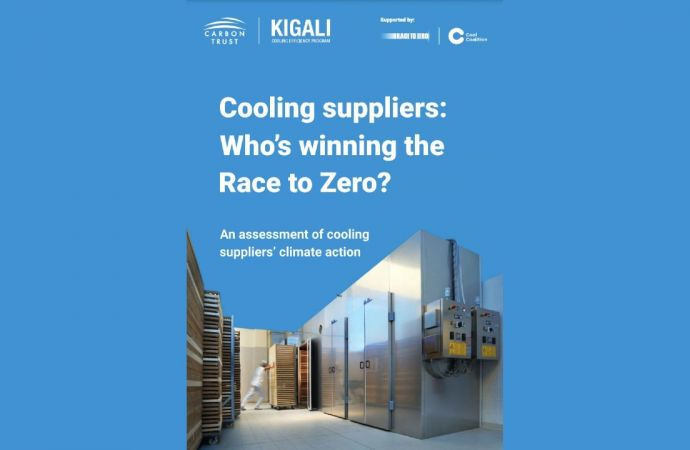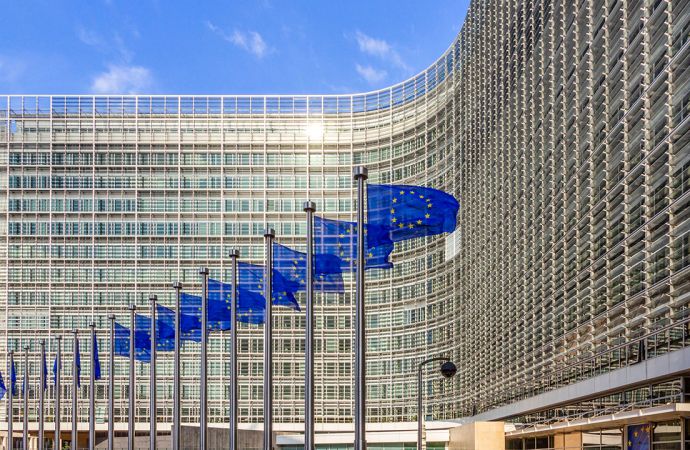Vietnam is looking to lessen the environmental impact of its industrial refrigeration sector. To help achieve this, a project has been initiated by the United Nations Industrial Development Organisation (UNIDO), the Government of Vietnam, the Vietnam Environmental Protection Fund and market development company shecco to reduce greenhouse gases and the use of ozone-depleting substances in Vietnam’s fisheries sector through the use of R290 based equipment.

The project aims to facilitate the adoption of new, climate-friendly and energy-saving technologies through policy measures, technology transfer and technical assistance, as well as awareness-raising activities. The scheme will also encompass the pilot demonstration conversion of two cold storage facilities from HCFC-22 to hydrocarbon systems.
The project is notably innovative since, for the first time, it brings together the funding mechanisms of the Montreal Protocol on substances that deplete the ozone layer and the Global Environment Facility (GEF), so that environmental benefits from the phase-out of ozone-depleting substances become eligible for a wider spectrum of financial support.
First steps being taken to help Vietnam meet upcoming regulation changes
At the first meeting of the parties - which took place in Hanoi, Vietnam on the 21 October 2014 - the initial groundwork was laid and there was discussion of the project’s importance for both Vietnam and the ozone. Rapidly impending global regulations over the use of HCFCs means that Vietnam must adapt their industrial refrigeration sector to comply with the regulatory framework. The government of Vietnam is well aware of this fact, and has already successfully eliminated the consumption of CFCs, Halon and CTCs in 2010, in accordance with the Montreal Protocol.
The phasing out of HCFCs is the next step in Vietnam’s journey to a purely green industrial economy. Initially, priority will be given to the elimination of HCFCs with high ozone depletion potential. However, it is not just the environment they will be aiding through the use of hydrocarbons and ammonia, they will also be saving the cost of energy usage. The conversion to R290 based refrigeration equipment will reduce energy consumption by 28%, which amounts to US$54,600 (€ 47188) per annum.
How best to go about the elimination of HCFCs
At the meeting of the parties, the best course of action was discussed in detail. An understanding was reached between the participants regarding the best way to go about encouraging Vietnam’s fisheries sector and what barriers they will face. The points discussed and agreed upon were:
The project will continue to proactively help Vietnam reduce their usage of harmful refrigerants in their industrial refrigeration sector over the next three years and will undoubtedly be a guide to others on how to convert to natural refrigerants
The project is notably innovative since, for the first time, it brings together the funding mechanisms of the Montreal Protocol on substances that deplete the ozone layer and the Global Environment Facility (GEF), so that environmental benefits from the phase-out of ozone-depleting substances become eligible for a wider spectrum of financial support.
First steps being taken to help Vietnam meet upcoming regulation changes
At the first meeting of the parties - which took place in Hanoi, Vietnam on the 21 October 2014 - the initial groundwork was laid and there was discussion of the project’s importance for both Vietnam and the ozone. Rapidly impending global regulations over the use of HCFCs means that Vietnam must adapt their industrial refrigeration sector to comply with the regulatory framework. The government of Vietnam is well aware of this fact, and has already successfully eliminated the consumption of CFCs, Halon and CTCs in 2010, in accordance with the Montreal Protocol.
The phasing out of HCFCs is the next step in Vietnam’s journey to a purely green industrial economy. Initially, priority will be given to the elimination of HCFCs with high ozone depletion potential. However, it is not just the environment they will be aiding through the use of hydrocarbons and ammonia, they will also be saving the cost of energy usage. The conversion to R290 based refrigeration equipment will reduce energy consumption by 28%, which amounts to US$54,600 (€ 47188) per annum.
How best to go about the elimination of HCFCs
At the meeting of the parties, the best course of action was discussed in detail. An understanding was reached between the participants regarding the best way to go about encouraging Vietnam’s fisheries sector and what barriers they will face. The points discussed and agreed upon were:
- High taxation for HCFC-22 and HFCs isn’t applicable for Vietnam as it will create contraband, which is extremely difficult to control.
- Due to Vietnam’s absence of energy saving regulation and energy labelling practice for industrial refrigeration equipment, it will take Vietnam a long time to develop these regulations (between 18 and 24 months).
- There is a barrier for NH3 and hydrocarbons due to the low price of R22 and R22 based equipment and the high price of NH3 and hydrocarbons.
- The expected price increase in R22 will take some time before it reaches Vietnam and cannot be relied on to incentivise change.
- To phase out R22, the use of NH3 refrigeration equipment is recommended for large and medium sized equipment and hydrocarbon refrigeration equipment to replace small sized equipment.
The project will continue to proactively help Vietnam reduce their usage of harmful refrigerants in their industrial refrigeration sector over the next three years and will undoubtedly be a guide to others on how to convert to natural refrigerants
MORE INFORMATION
Related stories




